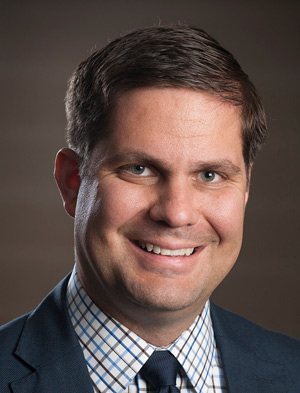 Erik Walerius
Erik Walerius
Chief supply chain officer
UW Medicine, Seattle, Washington
About Erik Walerius:
In his growing-up years, Erik Walerius spent school months in Seattle and most summers in Norway, where his mother, Aase, had been born and raised. Spending so much time near large bodies of water – i.e., the Norwegian Sea and Puget Sound – Walerius developed a passion for keelboat racing. In fact, after earning a master’s degree in health administration from the University of Washington in 2006, he returned to Norway, where he spent a year as a sailing instructor for the Royal Norwegian Yacht Club and as a researcher for the Norwegian Institute of International Affairs. (“Through connections, I got an internship with the former defense minister,” he explains.)
In 2007, he returned to the States, taking a position in clinical services development at Northwest Hospital (now part of UW Medicine), focusing on physician practice plans, community health and simulation training, in addition to oversight of the housekeeping and environmental services teams at Northwest Hospital. “It was an amazing experience,” he says. And challenging. “Everyone’s an expert on food and cleanliness,” he points out. So he learned a great deal about business as well as human relations. And he found the people who staffed these departments to be among the most hard-working and dedicated he had ever met.
In 2009, Walerius was asked to oversee the hospital’s materials management department in preparation for its affiliation with UW Medicine. “This was my first exposure to the inner workings of our supply chain, and I quickly found a passion for this work. Even though I wasn’t providing direct patient care, our team was helping to ensure our clinicians had the necessary tools and equipment to provide world class patient care in the most cost-effective manner possible.”
About UW Medicine:
UW Medicine offers patient care services in Washington, Alaska, Montana, Idaho (WAMI region). It includes Harborview Medical Center, Northwest Hospital & Medical Center, University of Washington Medical Center and Valley Medical Center Hospital, and admitted 64,410 patients in 2018. UW Medicine’s primary, specialty and urgent care clinics had almost 1.8 million patient visits in 2018.
Most interesting/challenging project in the past 12-18 months:
“I am very excited about our team’s work over the past 12 months launching seven nurse- and physician-led groups, comprising over 120 members, including 80 nurses and doctors,” he says. “This structure is supported by our supply chain team and focuses on addressing price, standardization and utilization opportunities across the products, services, and equipment used by our health system, ranging from Band-Aids to fixed wing and rotary aircraft.” The groups are surgery, cardiology, orthopedics, spine, nursing and patient care, cardiovascular and thoracic, and interventional radiology and peripheral vascular.
“We have had a successful value analysis program for a number of years, which has delivered over $30M in validated annual savings,” he adds. But it was primarily price-focused, and it leveraged clinicians on an ad hoc basis. “Our new structure has empowered our clinicians to take ownership of the projects, and we have named it ‘Clinical Products and Smart Innovation,’ or CPSI.”
Looking forward to:
“Our continued maturity in our Clinical Products and Smart Innovation work as well as a similar structure we have launched this past year for purchased services,” says Walerius. The Purchased Services Oversight committee comprises eight core groups focused on large areas of purchased-services spending across the health system. One group recently wrapped up an interpretive services agreement, which saved the system more than $450,000. “With the combination of our clinical and purchased services work, UW Medicine has 62 initiatives with a $12M annual savings target this fiscal year.”
Biggest challenge/change facing healthcare supply chain professionals in the next 5 years:
“The greatest opportunity facing our teams for the foreseeable future is being able to analyze and act on meaningful data that addresses total cost of patient care and patient outcomes. To be our clinicians’ trusted partner in delivering the highest quality care to our patients in the most cost-effective manner is our supply chain team’s vision statement, and I see that work being incredibly exciting, impactful, and rewarding for years to come.”
